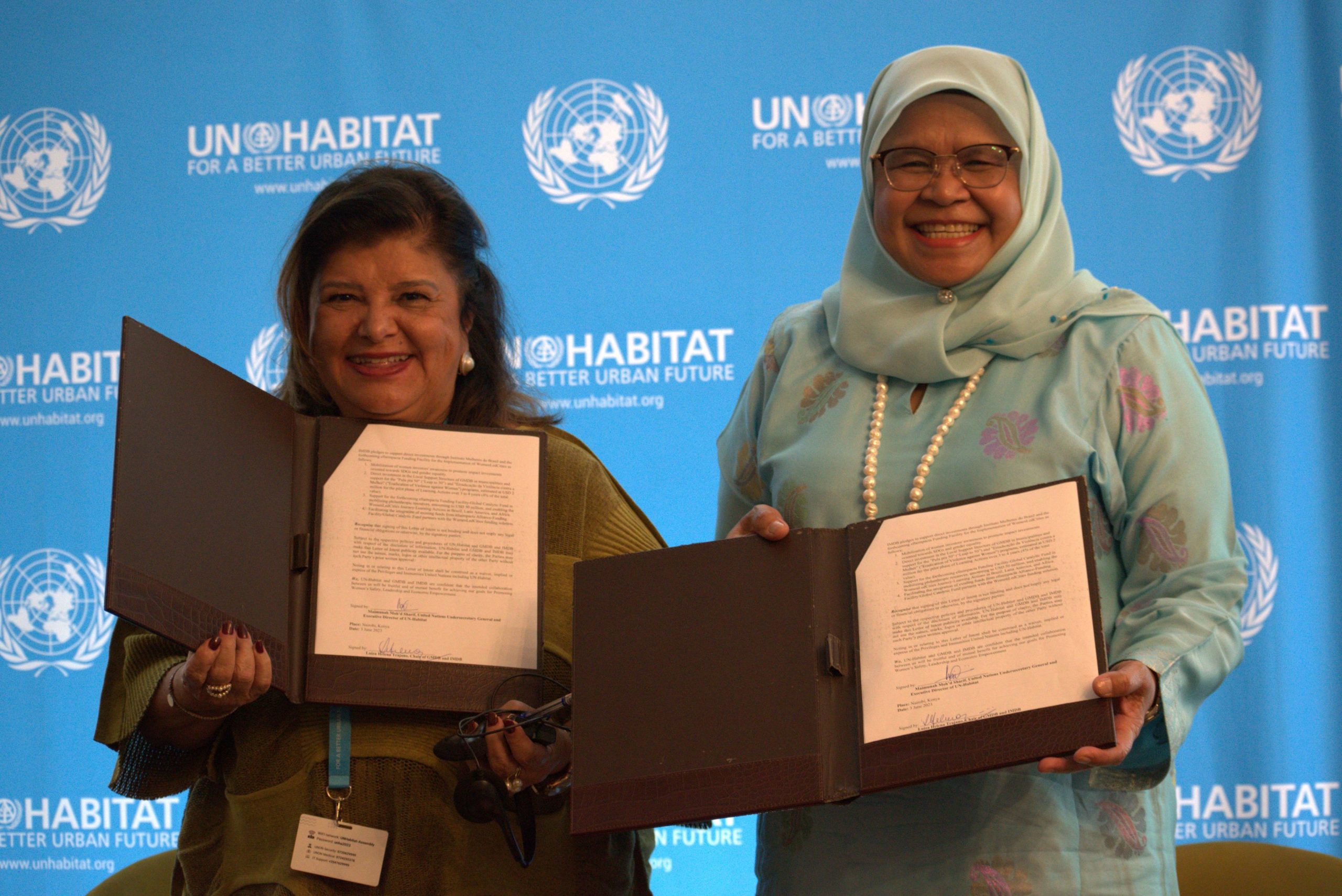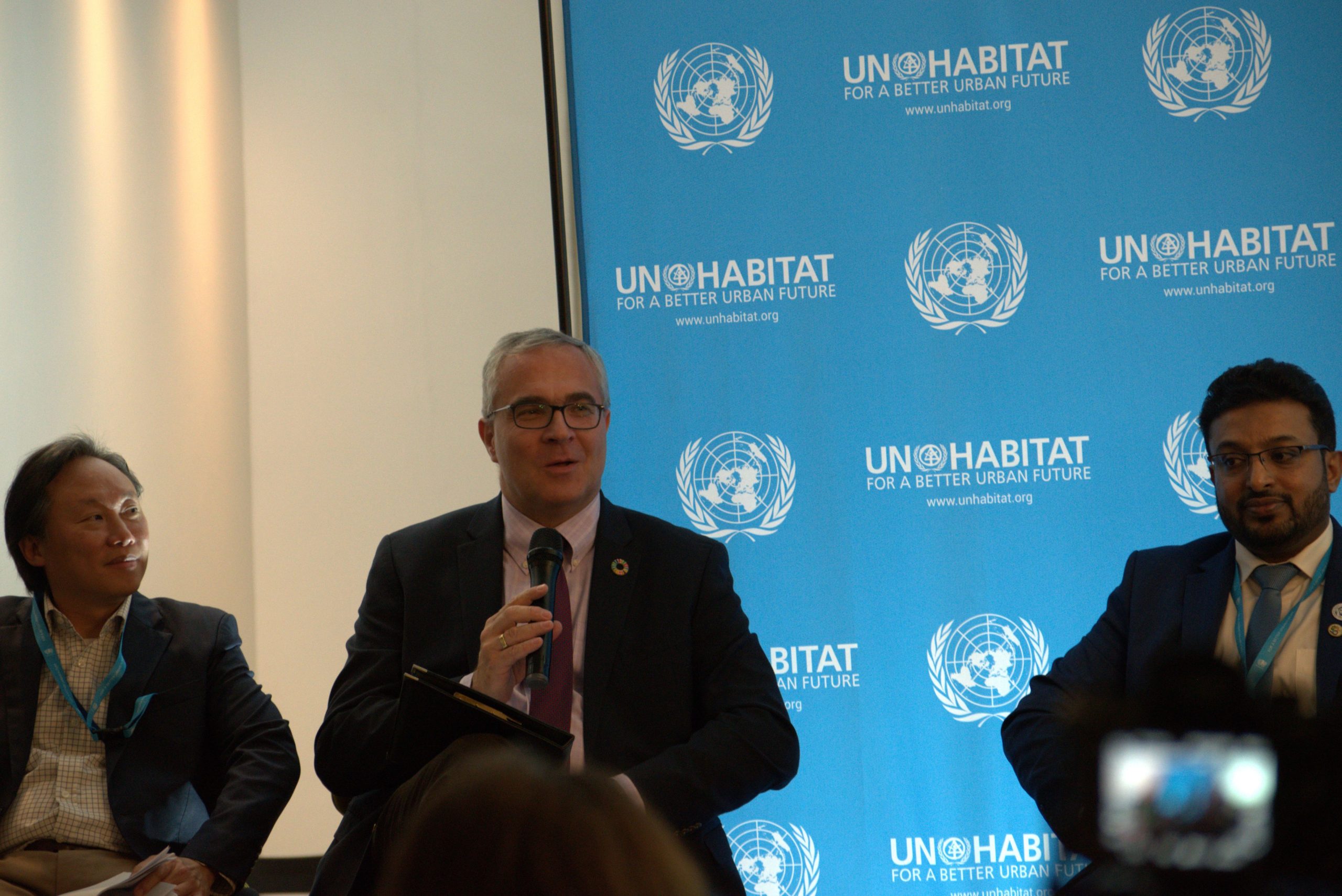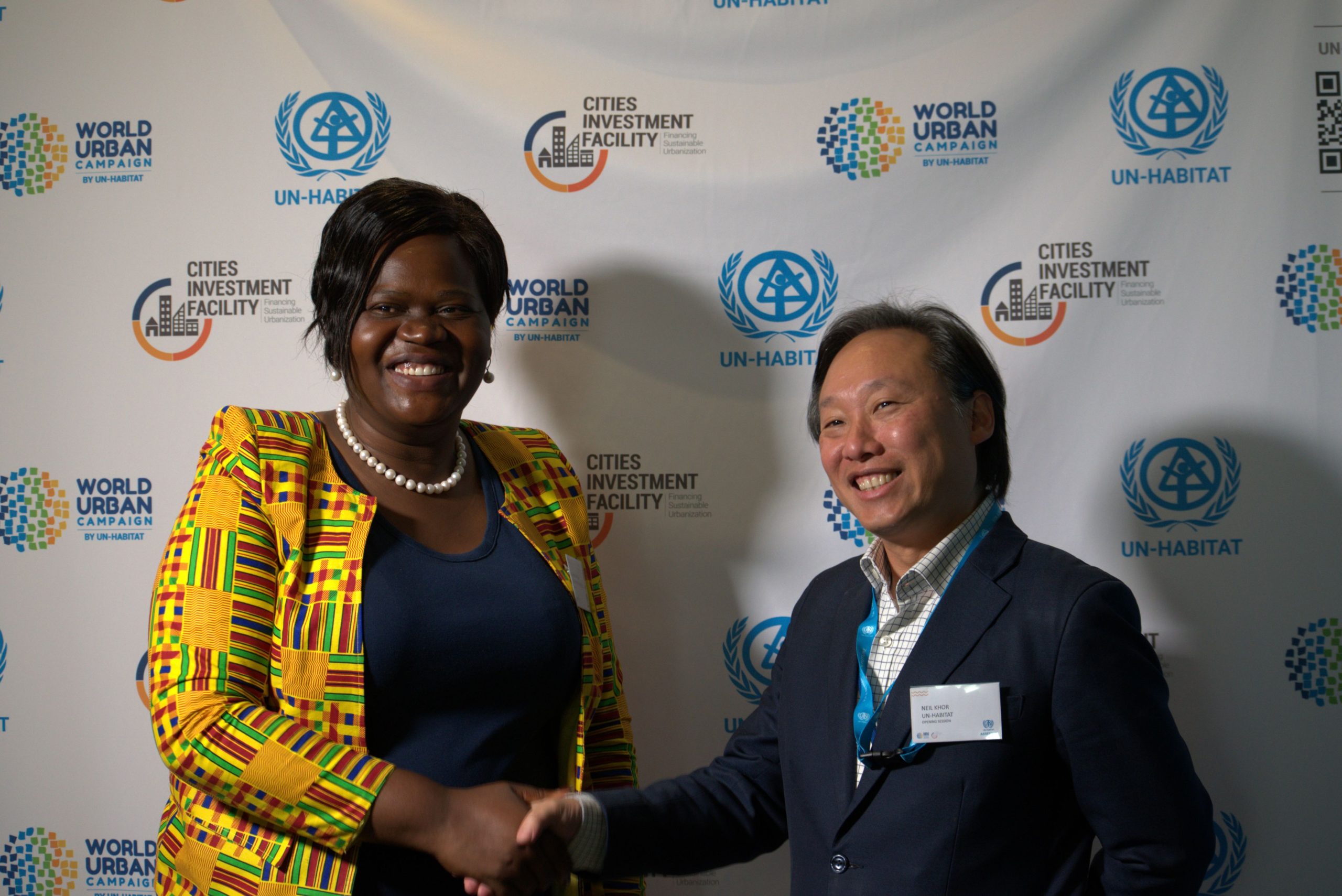UN-Habitat CIF Business Roundtable
Nairobi, Kenya 19 July 2023- On the sidelines of the Second United Nations Habitat Assembly, the UN-Habitat Business Roundtable that brought together over 130 Private Sector entities from all over the world including Turkiye, United Arab Emirates, Kenya, Nigeria, Philippines, China, and many more was held in Nairobi. The event was held on 3 June 2023 attracted the private sector, philanthropies, investors, local governments, and Member States, on the theme ‘Make it Happen in Cities’ to share concrete solutions and explore ways to leverage private sector expertise and resources to support the implementation of UN-Habitat’s New Urban Agenda and the Sustainable Development Goals.


In his opening remarks, Michal Mlynar, Deputy Executive Director of UN-Habitat, highlighted the role of businesses and industries as fundamental players in sustainable urbanization. ‘We know that without you, it will not happen in cities. Because we know that you have the power to catalyze the potential of cities for positive change and innovation, he said.
Neil Khor, Director of External Relations, Strategy, Knowledge, and Innovation (ERSKI), presented UN-Habitat’s collaboration with the private sector, building on the business and industry’s expertise and their power to innovate and implement.
Gladys Wanga, Governor, Homabay County, Kenya, and Neil Khor, acting Director, External Relations, Strategy, Knowledge, and Innovation Division, Special Advisor to the Executive Director at the Opening Session of the Business Roundtable on June 3, 2023, Nairobi, Kenya.
The participants discussed key challenges in attracting private resources towards financing sustainable urban development and affordability in the current multi-crises’ environment. They agreed that current economic uncertainty, market volatility, and shifting investor preferences have made it challenging to attract private resources for sustainable urban development.
They discussed the lack of sufficient financial incentives or regulatory frameworks that hinder private-sector involvement. Achieving affordability in sustainable urban development is challenging due to high initial costs, limited access to affordable financing, and the need to balance cost considerations with sustainability objectives. Effective coordination among stakeholders, including governments, businesses, financial institutions, and communities, is crucial but often difficult to achieve.

They offered several solutions and recommendations:
- Ensuring clear policies, regulations, and incentives that encourage private investment in sustainable urban development, as well as, developing risk mitigation instruments to help de-risk investments, making sustainable projects more attractive to private investors.
- Fostering public-private partnerships that bring together government entities, private sector expertise, and community stakeholders to leverage the strengths and resources of each sector to finance and implement sustainable urban development projects.
- Expanding innovative financing mechanisms such as the City Investment Facility of UN-Habitat, tailored to the specific needs of sustainable urban development to mobilize private capital towards sustainable projects.
- Increasing awareness and understanding of the benefits and opportunities associated with sustainable urban development, such as through the World Urban Campaign of UN-Habitat. Governments, businesses, and NGOs (Non-Governmental Organizations) collaborate on awareness campaigns, workshops, and public-private dialogues to engage stakeholders and build a shared understanding of the importance of resilience and sustainability.
One highlight from the initiatives discussed was the Cities Investment Facility and the upcoming launch of a Feasibility Fund; that will support the preparation of infrastructure investment projects.
